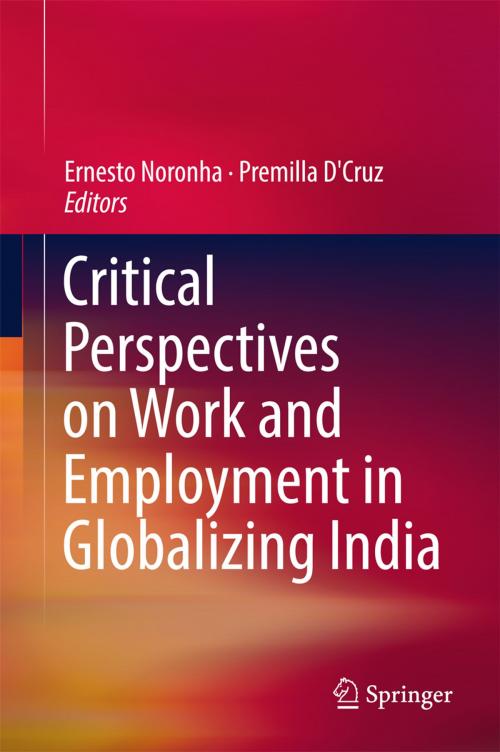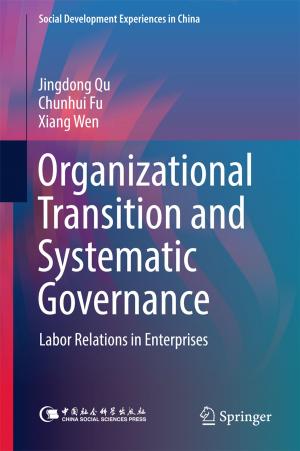Critical Perspectives on Work and Employment in Globalizing India
Business & Finance, Career Planning & Job Hunting, Labor, Nonfiction, Social & Cultural Studies, Social Science, Sociology| Author: | ISBN: | 9789811034916 | |
| Publisher: | Springer Singapore | Publication: | March 30, 2017 |
| Imprint: | Springer | Language: | English |
| Author: | |
| ISBN: | 9789811034916 |
| Publisher: | Springer Singapore |
| Publication: | March 30, 2017 |
| Imprint: | Springer |
| Language: | English |
This book showcases issues of work and employment in contemporary India through a critical lens, serving as a systematic, scholarly and rigorous resource which provides an alternate view to the glowing metanarrative of the subcontinent’s ongoing economic growth in today’s globalized world. Critical approaches ensure that divergent and marginalized voices are highlighted, promoting a more measured perspective of entrenched standpoints. In casting social reality differently, a quest for solutions that reshape current dynamics is triggered. The volume spans five thematic areas, subsuming a range of economic sectors. India is a pre-eminent destination for offshoring, underscoring the relevance of global production networks (Theme 1). Yet, the creation of jobs has not transformed employment patterns in the country but rather accentuated informalization and casualization (Theme 2). Indeed, even India’s ICT-related sectors, perceived as mascots of modernity and vehicles for upward mobility, raise questions about the extent of social upgrading (Theme 3). Nonetheless, these various developments have not been accompanied by collective action – instead, there is growing evidence of diminished pluralistic employment relations strategies (Theme 4). Emergent concerns about work and employment such as gestational surrogacy and expatriate experiences attest to the evolving complexities associated with offshoring (Theme 5).
This book showcases issues of work and employment in contemporary India through a critical lens, serving as a systematic, scholarly and rigorous resource which provides an alternate view to the glowing metanarrative of the subcontinent’s ongoing economic growth in today’s globalized world. Critical approaches ensure that divergent and marginalized voices are highlighted, promoting a more measured perspective of entrenched standpoints. In casting social reality differently, a quest for solutions that reshape current dynamics is triggered. The volume spans five thematic areas, subsuming a range of economic sectors. India is a pre-eminent destination for offshoring, underscoring the relevance of global production networks (Theme 1). Yet, the creation of jobs has not transformed employment patterns in the country but rather accentuated informalization and casualization (Theme 2). Indeed, even India’s ICT-related sectors, perceived as mascots of modernity and vehicles for upward mobility, raise questions about the extent of social upgrading (Theme 3). Nonetheless, these various developments have not been accompanied by collective action – instead, there is growing evidence of diminished pluralistic employment relations strategies (Theme 4). Emergent concerns about work and employment such as gestational surrogacy and expatriate experiences attest to the evolving complexities associated with offshoring (Theme 5).















